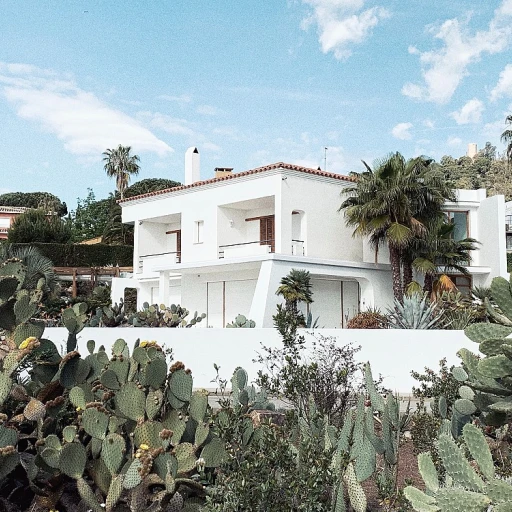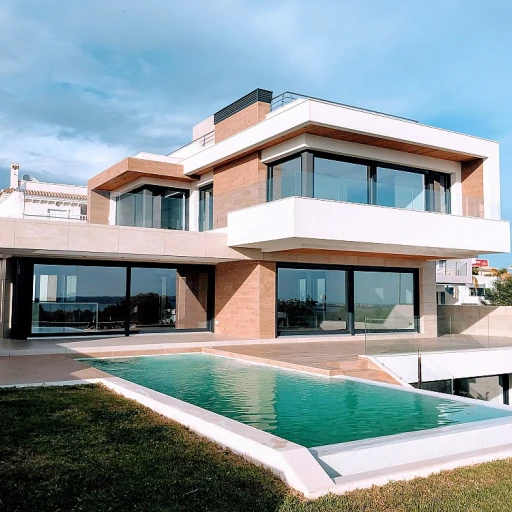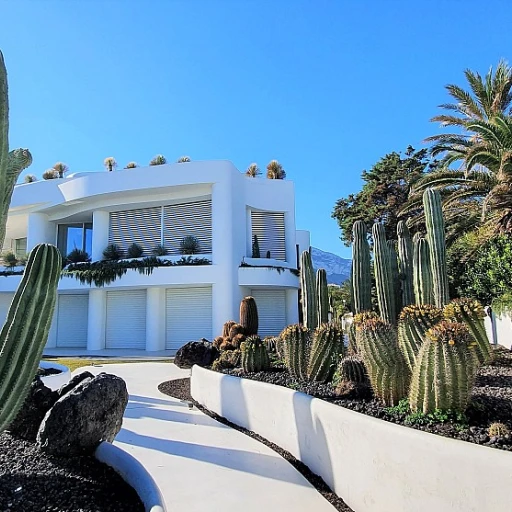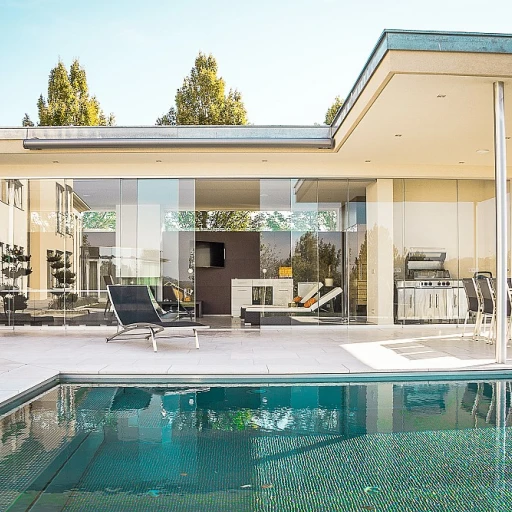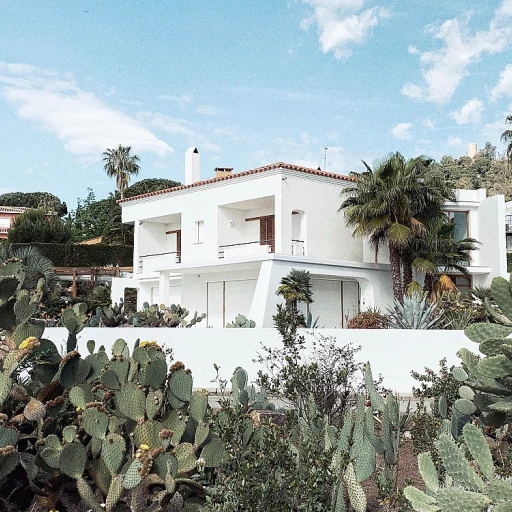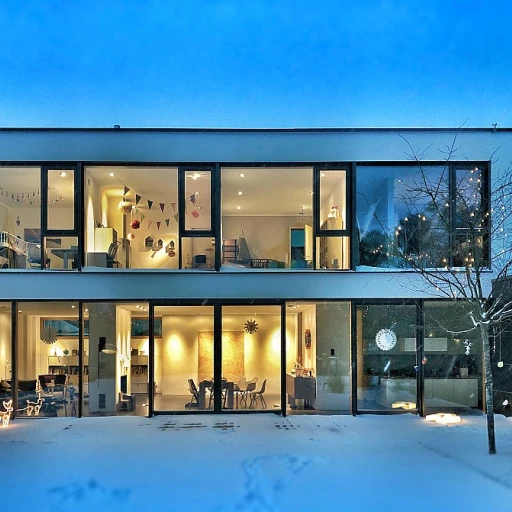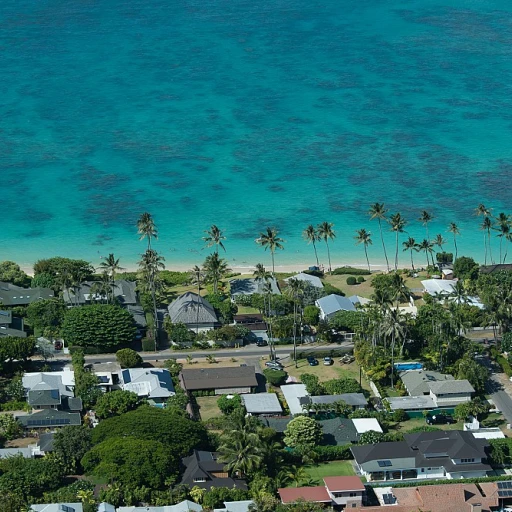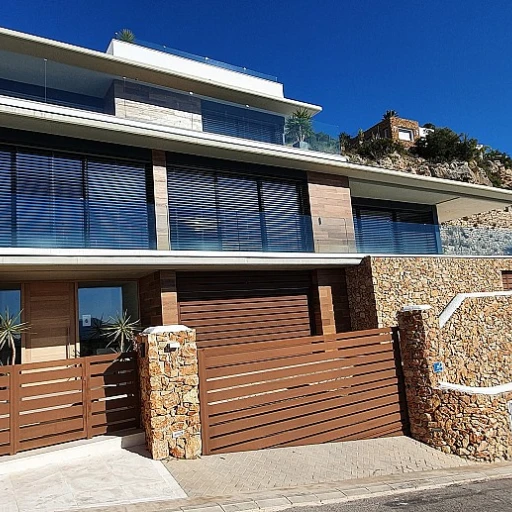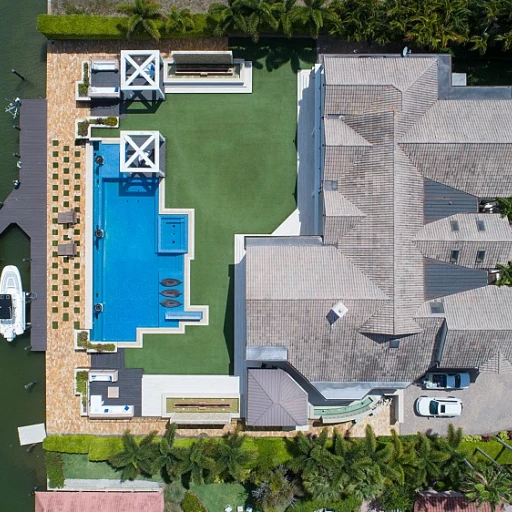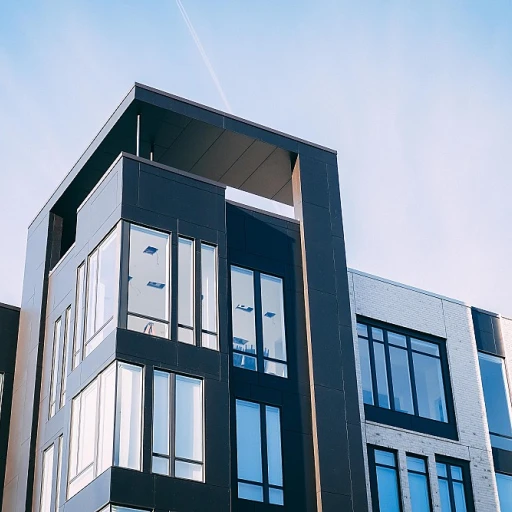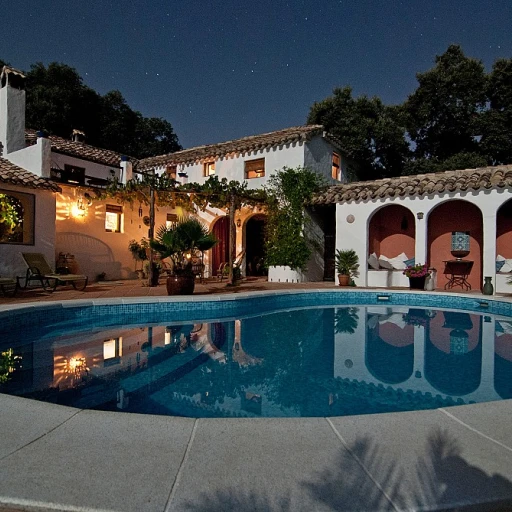Understanding the Lisbon real estate market
Lisbon: exploring the pulse of Portugal's property market
In recent years, Lisbon has become a hotspot for real estate investments. The city’s charm, coupled with a flourishing economy and stable political environment, has drawn both domestic and international buyers. According to the Portuguese Real Estate Association, property prices in Lisbon jumped by around 7.1% in 2021, a trend anticipated to continue in 2023. Lisbon's real estate market offers diverse opportunities, from historic buildings in the Alfama district to contemporary apartments in Parque das Nações. Notably, the average price per square meter (sqm) in Lisbon stands at €3,503 according to Idealista, a leading property portal in Portugal, which shows a solid resilience despite the global economic turbulence. h3>impact of the golden visa on Lisbon's property market Introduced in 2012, Portugal’s golden visa program has significantly influenced the Lisbon real estate scene. The program allows non-EU investors to obtain residency by purchasing property worth at least €500,000. Since its inception, more than 10,000 golden visas have been issued, injecting over €5.8 billion into the Portuguese economy. Chinese citizens are the predominant applicants, representing about 50% of the golden visa investments.Understanding the market dynamics
Real estate experts emphasize the importance of understanding Lisbon’s unique market dynamics. The city’s district variety caters to different lifestyle preferences and investment goals. For instance, the upscale neighborhood of Avenida da Liberdade offers luxury apartments fetching prices around €7,000 per sqm, while traditional homes in Alfama may cost approximately €3,000 per sqm. Ricardo Guimarães, director of the research firm Confidencial Imobiliário, notes that Lisbon's market remains “liquid and dynamic” and continues to attract diverse demographic profiles.Challenges and hurdles
Despite all the positives, the Lisbon real estate market is not without its challenges. The demand for housing has driven prices up, making it increasingly difficult for locals to afford properties within the city. Reports from INE (National Institute of Statistics) show that the average monthly rent in Lisbon increased by 37% between 2015 and 2020, exacerbating the housing affordability issue.Case studies: successful property investments
There's no shortage of success stories in Lisbon’s real estate market. For instance, an English family who recently purchased a townhouse in the trendy neighborhood of Campo de Ourique saw a 20% increase in property value within two years. Similarly, a tech entrepreneur from Germany invested in a refurbished loft in the Baixa district and has been enjoying an annual rental yield of 6%. Such examples underscore Lisbon’s potential as a lucrative investment avenue. For a deeper understanding and more insights into Porto, Portugal real estate, check out our comprehensive guide here.Key neighborhoods to consider for your next property
Exploring the heartbeat of lisbon: property hotspots
When diving into the vibrant lisbon real estate market, there are a few stand-out areas that promise charm, lifestyle, and potential investment returns. Many savvy buyers gravitate towards select neighborhoods that mirror Lisbon's diverse character and stunning appeal.Alfama's charismatic allure
Known for its narrow, winding streets and traditional Fado music, Alfama is Lisbon's oldest neighborhood. It captures the quintessential Portuguese spirit. Its historic buildings and breathtaking views of the Tagus river make it a popular choice for those seeking an authentic Lisbon experience.A property in Alfama can be a lucrative investment, with rental yields often peaking due to its touristic allure. Apartments here typically range from €5,000 to €7,000 per sqm, reflecting development and gentrification trends.Chiado: modern meets traditional
Chiado, located in the heart of the city, seamlessly fuses historical grandeur with contemporary luxuries. This district boasts high-end boutiques, theaters, and renowned restaurants. The price per sqm for a Chiado property can range from €7,000 to €10,000. Its central location makes it an upscale choice with significant rental demand.Príncipe Real: the elegant choice
Príncipe Real, often described as one of Lisbon's most sophisticated areas, is marked by enchanting gardens and 19th-century mansions. Its bohemian flair attracts both locals and expatriates. Properties here are diverse, often including spacious apartments and townhouses. Prices generally hover between €8,000 and €9,500 per sqm.Santo António: the upscale district
Santo António encompasses Avenida da Liberdade, a premier shopping avenue reminiscent of Paris's Champs-Élysées. Lavish apartments along this stretch present values upward of €12,000 per sqm, underscoring the district's elite status.Campo de Ourique: A family-friendly retreat
Campo de Ourique is celebrated for its community vibe, schools, and markets. This area is ideal for families looking to settle down in a tranquil yet connected part of Lisbon. Prices are relatively more accessible, averaging €5,500 per sqm, making it a favorite among young professionals and families.Bairro Alto: nightlife and culture
Renowned for its lively nightlife, Bairro Alto appeals to those who thrive in dynamic settings. Besides its vibrant bars and nightlife, this district is famous for its cultural scene. Properties in Bairro Alto range from €4,500 to €6,500 per sqm - an alluring prospect for investors eyeing short-term rentals.From chiado to Alfama: understanding the diversity of Lisbon living
Acquiring property in Lisbon means embracing the city's assorted vibes. As Jorge Dias, a seasoned real estate analyst, shares, "Lisbon's real estate market is a tapestry of tradition and modernity, each neighborhood offering unique investment potentials." Indeed, understanding these vibrant areas can guide you to make an informed purchase in one of Europe's most enchanting cities.The allure of Cascais and Estoril
Charm of coastal living in portugal
There's something undeniably enchanting about the coastal areas near Lisbon, especially places like Cascais and Estoril. These spots are not just picturesque but also packed with history and a plethora of amenities for a comfortable lifestyle. What makes these areas alluring is the perfect blend of traditional Portuguese charm and modern conveniences.
In terms of investment, Cascais and Estoril have been steadily rising in popularity. According to a report from The Exclusive Estate, property values in these areas have increased by approximately 20% over the past five years, making them a hot spot for potential buyers.
Why choose cascais and estoril?
Firstly, let's talk about Cascais. Known as a fishing village turned upscale suburb, it offers a unique blend of old-world charm and modern luxury. In fact, Cascais has been named one of the Best Places to Live in Europe by various lifestyle magazines. Properties here range from traditional Portuguese houses to modern apartments with stunning ocean views.
Then there's Estoril, often dubbed the 'Monte Carlo of Portugal'. This nickname isn't just for show; the region is known for its casino, upscale restaurants, and global crowd. According to Joaquin Martinez, a real estate expert with over 20 years of experience, “Estoril attracts a mix of both local and international investors looking for luxury properties and a higher standard of living.”
Case studies of successful property purchases
A prime example is the case of John and Maria Tulley, a British couple who sought to find a retirement home in Cascais. They reported a seamless buying experience and highlighted the €1.4 million villa they purchased, boasting 5 bedrooms, sea views, and a private pool.
Another notable success story includes Jacob Svenson from Sweden, an IT professional who bought an apartment in Estoril for €850,000. His 3-bedroom apartment features a modern design, proximity to the beach, and all the luxurious amenities you might expect.
Appeal for families and expatriates
It’s also worth mentioning that both Cascais and Estoril are highly appealing to families and expatriates. They offer superior international schools, healthcare facilities, and a vibrant expatriate community. Notably, the St. Julian's School in Carcavelos and the German School of Lisbon are reputed institutions catering to international students.
With Lisbon just a 40-minute drive away, residents get the best of both worlds: the hustle and bustle of city life and the tranquility of their coastal haven. This dual appeal is yet another factor contributing to the steady rise in property prices in these regions.
Navigating the golden visa program
Understanding the Lisbon golden visa program
The golden visa program is one of Portugal's standout incentives for attracting foreign investment in real estate. Introduced in 2012, this program offers residency permits to non-EU citizens who invest in Portuguese property, providing a fast track to citizenship. To qualify, an investor must make a real estate purchase worth at least €500,000. Alternatively, they can invest €350,000 or more if the property is part of an urban regeneration project in a designated area.
According to Statista, by the end of 2021, Portugal had issued over 10,000 golden visas, with real estate investments accounting for the bulk of these approvals. Approximately 90% of the golden visa investments are directed toward property purchases, underscoring the attractiveness of the Portuguese real estate market.
Why Lisbon is a top choice for golden visa investors
As the capital and largest city of Portugal, Lisbon is a prime location for golden visa investors looking for both lifestyle and financial benefits. The city’s vibrant culture, stunning architecture, and thriving economy make it an ideal place to live and invest.
Data from Global Property Guide indicates that property prices in Lisbon have soared in recent years, with average prices for homes in the city center reaching €5,200 per square meter (sqm) by the end of 2020. Neighborhoods like Alfama, Baixa, and Avenida da Liberdade are particularly popular among investors.
The process and benefits of the golden visa
The golden visa program is designed to be straightforward. Once the real estate investment is made, applicants must maintain their investment for at least five years and spend a minimum of seven days in Portugal in the first year, and at least fourteen days in the subsequent two-year periods. After five years, investors can apply for permanent residency or citizenship.
Hugo Santos Ferreira, president of the APPII (Portuguese Association of Real Estate Developers and Investors), explains, "The golden visa program doesn't just benefit investors; it significantly boosts the Portuguese economy by creating new jobs, enhancing urban vitality, and increasing tax revenues."
Case study: A successful investment in Lisbon
Consider Sarah and James, a couple from the United States who took advantage of the golden visa program. They purchased a three-bedroom apartment in the Parque das Nações area for €650,000. Initially attracted by the visa program, they were soon enchanted by Lisbon's rich cultural tapestry and welcoming community. “We felt at home right away,” Sarah shares. “Lisbon's blend of historical charm and modern vibrancy is unparalleled.”
Over five years, Sarah and James' property appreciated by 25%, proving a sound financial decision beyond the residency benefits. Experts like Hannah Corbett from Portugal-based property consultancy LCP underscore that such positive returns are common in Lisbon’s buoyant market.
Challenges and controversies
While the golden visa program has been largely celebrated, it has faced criticism and controversy. Some locals argue that it contributes to rising property prices, making it difficult for residents to afford homes. Moreover, certain areas, particularly in Lisbon and Porto, have been saturated with short-term rental properties catering to tourists and golden visa investors.
Reports from Pulitzer Center highlight concerns about gentrification and the displacement of long-term residents. Despite these issues, the program continues to draw substantial interest from international investors, maintaining its key role in driving Lisbon's real estate market.
Conclusion and expert advice
As Lisbon's real estate market continues to thrive, the golden visa program remains a pivotal avenue for foreign investors. Prospective buyers are advised to conduct thorough research and seek guidance from seasoned experts. Ricardo Lopes, a property lawyer in Lisbon, advises, "Working with local professionals ensures that you not only find the best properties but also navigate the legal intricacies seamlessly."
Types of properties available in Lisbon
Exploring apartments in various Lisbon neighborhoods
Lisbon offers a kaleidoscope of apartment options tailored to diverse tastes and budgets. From the historical charm of Alfama to the modern vibes of Parque das Nações, there's something for everyone. Alfama, with its narrow, winding streets and traditional Fado music, is ideal for those seeking a deeply rooted Lisbon experience. Apartments here often feature beautiful tile work and intricate architecture.
Finding your ideal house in Lisbon
Houses in Lisbon can range from quaint detached homes in the quieter suburbs to grand villas in upscale neighborhoods. Those with a taste for luxury might find the sprawling estates in areas like Santo António to be particularly appealing. According to a 2023 report by Portugal Real Estate Guide, average house prices in these prestigious districts can exceed 5,000 EUR per square meter.
Investing in multi-bedroom apartments
Three-bedroom apartments, especially in high-demand areas like Baixa and Avenida da Liberdade, command a high price but offer substantial returns. These locations place residents right at the heart of the city's commercial and cultural hubs. Restored Pombaline buildings are particularly popular, seamlessly blending historical architecture with modern amenities.
The appeal of penthouses with a view
Penthouses overlooking the Tagus River or historic Lisbon landmarks are a sought-after commodity. These exclusive properties offer expansive living spaces, state-of-the-art fixtures, and prime locations. A study by Lisbon Property Matters (2022) found that the prices for premier penthouses can range between 1 million to 3 million EUR.
Understanding the difference: villas vs. townhouses
Villas and townhouses offer varied lifestyle options. Villas, often located in suburban areas like Oeiras and Cascais, come with extensive gardens, swimming pools, and sometimes even panoramic ocean views. Contrastingly, townhouses in districts such as Campo de Ourique provide a cozier, more urban living experience while still offering ample space and comfort.
Specialized properties: Historic homes and renovated apartments
Historic homes are abundant in Lisbon neighborhoods like Alfama and Santo António. These properties, often centuries old, are imbued with a rich past and unique architectural details. In contrast, renovated apartments commonly feature contemporary interiors within classic facades, offering a blend of old and new. The demand for these types of properties reflects a broader European trend towards preserving historical buildings while modernizing their interiors.
Case studies: Successful property purchases in Lisbon
Real stories: triumphs and trials
In the thrilling world of Lisbon real estate, every property purchase tells a unique story. We'll delve into a couple of notable transactions that highlight both the opportunities and challenges of buying property in Lisbon.
From London to Lisbon: a family's journey
The Martins family, once residents of London, sought a warmer climate and a slower pace of life. Their attention turned to Lisbon's vibrant neighborhoods and eventually landed on a charming three-bedroom apartment in Campo de Ourique. With its tree-lined streets and close-knit community vibe, the location matched their desire for a serene, yet lively environment.
Their apartment, priced at €600,000, featured a spacious living room, a modern kitchen, two bathrooms, and a generous 150 sqm. Despite a few bureaucratic hurdles, the golden visa program facilitated their dream move to Portugal.
Investing in baiza: a property's appreciation
Antonio Pereira, a savvy investor from Sao Paulo, recognized the rapid appreciation potential of Lisbon real estate, particularly in the historic Baixa district. He purchased a quaint, yet modern two-bedroom apartment overlooking the Tagus River for €450,000 in 2019. Fast forward to 2023, the property's value soared to €650,000, as confirmed by a report from Prime Yield.
His investment reaped considerable gains owing to Baixa's revitalization efforts and increased tourist footfall, making it a lucrative decision.
Navigating Portugal's golden visa program
For those navigating the golden visa program like the Martins family, the allure of Lisbon is coupled with the appeal of securing residency in Portugal. According to a study by AICEP Portugal Global, a significant 68% of golden visa seekers prefer Lisbon due to its lucrative real estate market and high quality of life.
However, it's crucial to remain updated on program changes and legal requirements to ensure a smooth application process. Professional advice from legal advisors like Henrique Pinto, a noted expert in Portuguese property law, can be invaluable.
Choosing the ideal neighborhood
For potential buyers, choosing the right area is pivotal. With varied neighborhoods like Alfama, known for its historic charm, and Parque das Nações, famed for its contemporary lifestyle, the choices cater to diverse tastes and preferences. The 2022 report by Savills indicated a 15% increase in property values across central Lisbon areas, underscoring their popularity.
Careful consideration of factors like property size, number of bedrooms, proximity to amenities, and potential for appreciation should guide buyers in making informed decisions.
Expert insights on buying property in Lisbon
What seasoned buyers say about Lisbon's real estate
When navigating the Lisbon real estate market, it's imperative to listen to those who've been through the process. One expert, John Andrews from PortugalProperty.com, mentions, 'The demand for property in Lisbon is driven by its rich history, vibrant community, and a strong rental market.' Data supports this with over 80% of Lisbon's accommodation purchases in 2022 being geared towards rental investments.
Emerging areas gaining traction
Another key point highlighted by Jane Santos from PerfectPortugal.com is the rise of once-overlooked neighborhoods like Santo António and Campo de Ourique. These areas are now hotspots due to their unique blend of modern amenities and traditional charm. Recent figures show that the value of properties in Campo de Ourique has risen by 15% in the last year, making it an attractive investment.
Decision factors according to experienced investors
High on the list for many buyers is the proximity to key landmarks. Proximity to places like Baixa or along Avenida da Liberdade can significantly impact property prices. 'A three-bedroom apartment on Avenida da Liberdade can range between €800,000 and €1.5 million depending on the exact location,' says Alex Meirelles, a senior agent at LisbonResidences.com.
Real-life property purchases
Case studies reveal insightful stories; take Mark and Samantha Fisher, who secured a cozy apartment in Alfama for €400,000. In the span of five years, property values increased by 20%, capitalizing on Alfama's growing appeal among tourists.
If you're considering a broader investment portfolio, don't miss out on Lisbon's satellite areas like Cascais and Estoril. These coastal gems offer a distinct blend of luxury and tranquility, contributing to Portugal's wider real estate landscape.
For more insights on another Portuguese city, explore our detailed Porto real estate guide.
Future trends in Lisbon real estate
Forecasting the evolution of the Lisbon real estate market
The Lisbon real estate market is ever-changing, and understanding the future trends can help potential buyers make informed decisions.
According to a 2022 report by Deloitte, Lisbon's property prices increased by 8.6%, driven by a combination of high demand and limited supply (source). Property professionals like Miguel Poças Santos, a real estate consultant with JLL Portugal, foresee continued growth in residential property values, fueled by Portugal's rising popularity among expats and investors alike.
Emerging neighborhoods and investment opportunities
Various districts in Lisbon show varying levels of potential for investment growth. For instance, the Parque das Nações area has caught the attention of international buyers with its modern infrastructure and strategic location near the Exo and Lisbon airport.
In a similar vein, up-and-coming neighborhoods like Marvila and Beato are transforming rapidly due to urban renewal projects, making them attractive to younger populations looking for contemporary living spaces.
The rise of co-living and eco-friendly properties
Trends indicate a growing interest in co-living spaces and eco-friendly houses, reflecting a shift in lifestyle preferences. Reports from the European Public Real Estate Association note a 10% annual increase in the demand for sustainable properties (source).
This trend is echoed by industry experts like Rita Neves Costa from CBRE, who believes that eco-conscious developments will be a significant driving force in the Lisbon property market.
Impact of technology on property transactions
Technology is increasingly shaping real estate transactions in Lisbon. Platforms like Imovirtual and Casa Sapo have streamlined property searches, and virtual reality tours have become more common, influenced by the COVID-19 pandemic. The use of blockchain for secure transactions is also under exploration, with some agencies like Remax Portugal testing its applications for property deeds and contracts.
Long-term rental market dynamics
Besides property sales, the long-term rental market in Lisbon is witnessing interesting shifts. Areas like Santo António and Campo de Ourique are in high demand for rental properties, with the average rental prices ranging from €12 to €15 per sqm as of 2022 (source).
As more people prefer flexible living arrangements, the rental sector sees a steady demand, offering consistent returns for investors.
Foreign investments and global influence
International buyers are contributing significantly to the Lisbon real estate boom. Data from INE (Instituto Nacional de Estatística) show that foreign investors accounted for 11% of property transactions in 2021.
Real estate agent Nuno Garcia from Portugal Sotheby’s International Realty suggests the Golden Visa Program has been a vital catalyst, attracting investments from China, Brazil, and South Africa.
The interplay of these trends paints a dynamic picture of the Lisbon real estate market, projecting a positive outlook for both buyers and sellers.
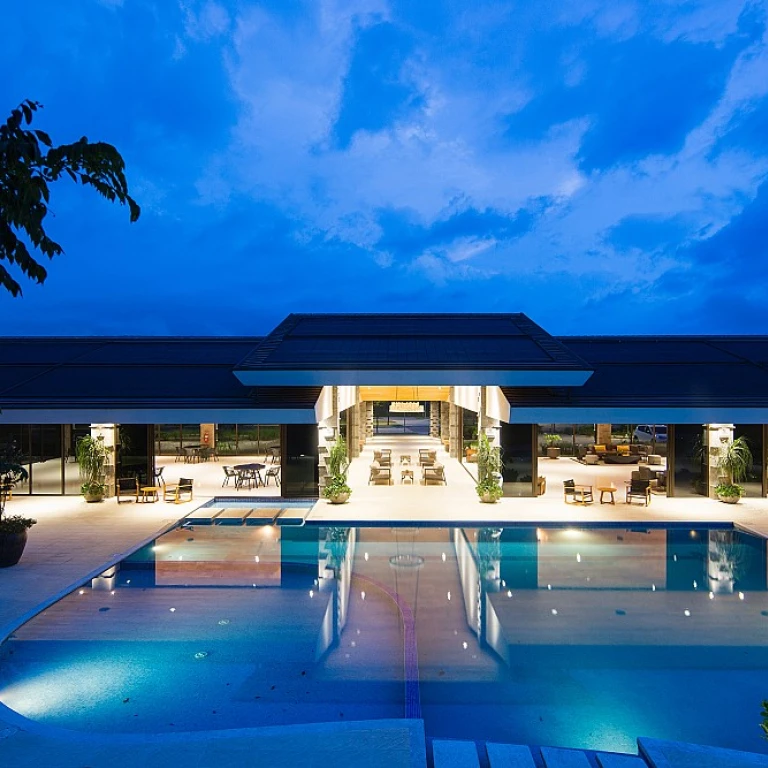
-large-teaser.webp)
